Rome: Myths and Legends
Go to : ANCIENT ROME | MEDIEVAL ROME | RENAISSANCE ROME | BAROQUE ROME | ROMANTIC ROME | MODERN ROMEANCIENT ROME
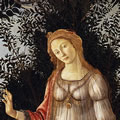
Legends of Myrtle
One of the legendary plants of Rome is the myrtle, because it was with the Myrthus that Romans and Sabines purified themselves when the war caused by the Rape of the Sabine women ended with the merger of the two peoples. Legend has it that they did the same place where the collision had occurred and where it was later erected the shrine of Venus Cloacina, the purifying goddess whose plan was just the myrtle. ...
Continue »
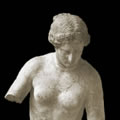
Nimphs of floating island
At north of Rome in the region called Alta Sabina, the largest water catchment area in Europe, the ancients had already placed the kingdom of the river water divinities and Pliny had nominated Nemora Vacunae, the Wood of Vacuna, the great expanse of sylvan mountains that were around the Lacus Cutiliae. Vacuna was the Sabine goddess of water, nature, forests and fertility, but she was also the goddess of rest ...
Continue »

Heracles, Apollo and the deer Cerinite
The myth of Hercules is the story of aspiration that impels man to perfection since archaic times. He was born demigod to dominate the human world to ...
Continue »
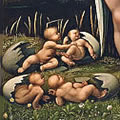
Dioskouros
In the Forum, three solitary columns testify after 2500 years the cult of Rome for the Divine Castores, the Dioskouros (Dioskouroi), the heroes who conquered ...
Continue »

Rex Picus, myth and legends
Pico was one of the kings of the archaic Latium, son of Saturn and Feronia, he founded the towns of Alba Longa and Laurentum and therefore it is an ...
Continue »
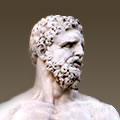
The Hercules and Cacus myth
The Hercules and Cacus myth expresses the progressive insertion of the Hellenistic culture on the primordial Italic cultures: Hercules is the ...
Continue »
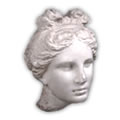
Tacita Muse
When the Romans borrowed from Greeks the cult of the Nine Muses the arts protectors, they had already a muse only Roman: Tacita ...
Continue »
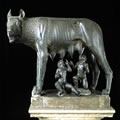
The Lupa, Romolo and Remo
Tito Livio in the first book of Ab Urbe Condita assumes the difficult task of explaining the dinasty of the founder of Rome. Gods move the destinies ...
Continue »
MEDIEVAL ROME
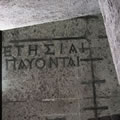
Augustus treasure in Campo Martio
In the tenth century there were many pilgrims who for fear of world ending in the year Thousand went like penitents in St. Peter, but among them were also ...
Continue »






